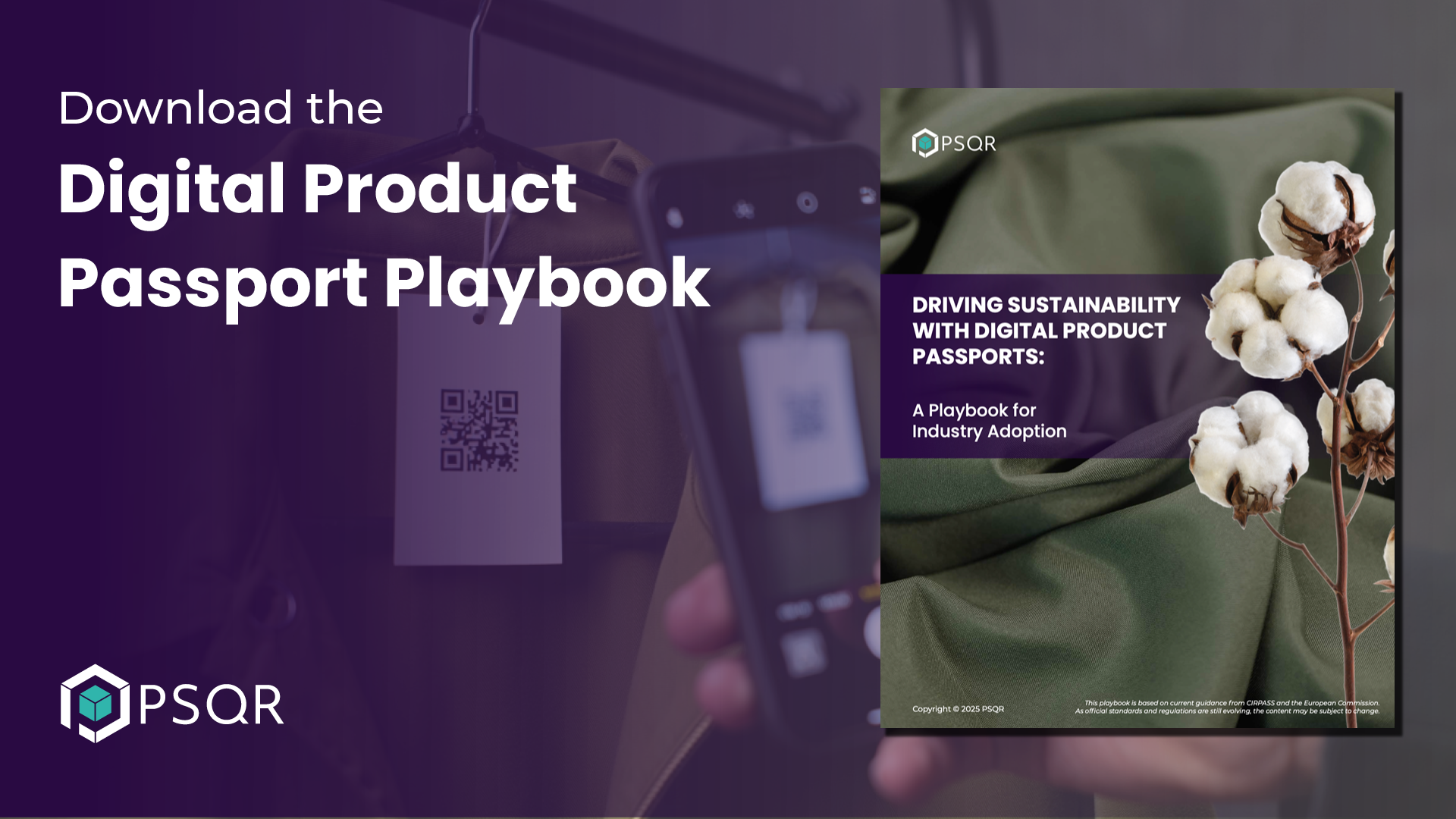In today’s textile industry, the demand for transparency and sustainability has never been higher. Consumers, regulators, and brands alike are seeking greater visibility into the origins and lifecycle of textile products.
This evolving landscape has given rise to the concept of the Digital Product Passport (DPP). A Digital Product Passport is a digital document that records and shares critical information about a product throughout its lifecycle. For companies across the textile supply chain, adopting DPPs is becoming not just a regulatory requirement but a competitive necessity.
At the heart of this transformation is the need for robust supply chain traceability. By implementing traceability in textiles, companies can solve the complexities involved in implementing digital product passports and ensure end-to-end transparency.
In this blog post, we’ll explore how to:
- Effectively approach the integration of DPPs
- Leverage advanced textile traceability software solutions to meet industry standards
- Enhance consumer trust
- Drive sustainability goals.
The challenges of the textile industry
Besides the increasing need for compliance within the textile industry, the industry faces other challenges that affect businesses and consumers.
Some of the main challenges include:

- Supply chain (disruptions, inventory management, quality control, etc.)
- Textile waste (unsustainable production and consumption patterns. As the latest research suggests, fashion creates 40 million tonnes of textile waste annually)
- Sustainable sourcing (fluctuating material costs, maintaining quality standards, etc.)
- Growing demand for sustainable textiles
- Product lifecycle management (managing the lifecycle of a product from its origins to its end of life)
- Data security (as the fashion industry grows more dependent on digital systems, it becomes increasingly vulnerable to data breaches and cyber-attacks)
Digital Product Passport in textiles
As a response to the increasing challenges within the textile industry and as a means to improve supply chain transparency, traceability, and the circular economy, the European Commission has introduced the Ecodesign for Sustainable Products Regulation (ESPR) framework. The ESPR’s goal has, among other things, introduced the Digital Product Passport regulation.
A DPP serves as a comprehensive digital record that captures essential information about a product’s lifecycle, from:
- Raw material sourcing to manufacturing processes,
- Distribution,
- Recycling or disposal.
In the textile industry, digital product passports might require data on:
- Fibre content,
- Chemical treatments,
- Labour conditions,
- Environmental impact, and
- Supply chain logistics.
(The exact data requirements have not yet been established)
Regulatory frameworks, particularly in the European Union, are mandating that brands and manufacturers adopt DPPs to ensure traceability in textiles, reduce environmental harm, and provide consumers with clear, trustworthy information.
Meeting these requirements helps companies comply with legal standards and positions them as leaders in responsible production, fostering greater consumer trust and loyalty.
The role of traceability in textiles
Traceability in textiles is increasing in importance, as different regulations have been put in place within the European Union, as well as outside of it. Moreover, consumers and stakeholders demand greater supply chain transparency and accountability throughout production.
By tracing the journey of textiles from raw materials to finished products, companies can ensure that every step meets quality standards and ethical practices. This not only helps verify the sustainability of the materials used but also confirms that labour practices are fair and environmentally responsible. Traceability enables companies to address consumer concerns about the origin and impact of their products, fostering trust and loyalty in a competitive market. Moreover, it allows businesses to identify inefficiencies, reduce waste, and mitigate risks associated with counterfeit goods or unethical practices.
The importance of traceability is further emphasized by the upcoming Digital Product Passport (DPP) regulation, which will require detailed documentation of a product’s lifecycle. The DPP mandates that every textile product sold in the European Union includes a digital record of its environmental, social, and governance (ESG) footprint.
For textile companies, complying with the DPP means adopting robust traceability solutions that can seamlessly capture and report data at every stage of the supply chain. By integrating these systems, businesses can ensure compliance with the new regulations and also improve their day-to-day business operations and brand reputation.
In a market that increasingly values these attributes, traceability is not just a regulatory requirement but a strategic advantage that can drive growth and consumer loyalty.

Getting ready for compliance with PSQR
PSQR has a long track record of helping businesses comply with different industry regulations.
From the Tobacco Products Directive regulation to various seafood regulations, AGEC regulation (France), and preparing companies for compliance with the DPP, PSQR offers an adaptable solution that feeds unique business needs.
Our serialization and traceability software offers a modular architecture that enables companies to seamlessly track and trace products throughout the supply chain.
By implementing Saga to systems, companies can start to:
- Manage inventory more effectively
- Optimize supply chain processes by having real-time data insights
- Reduce risks that occur as a result of product recalls and/or counterfeiting
All the while ensuring compliance with regulatory requirements.
If you’d like to learn more about PSQR’s Saga and how it can help enhance your business operations while ensuring compliance with regulations, please reach out to us.





